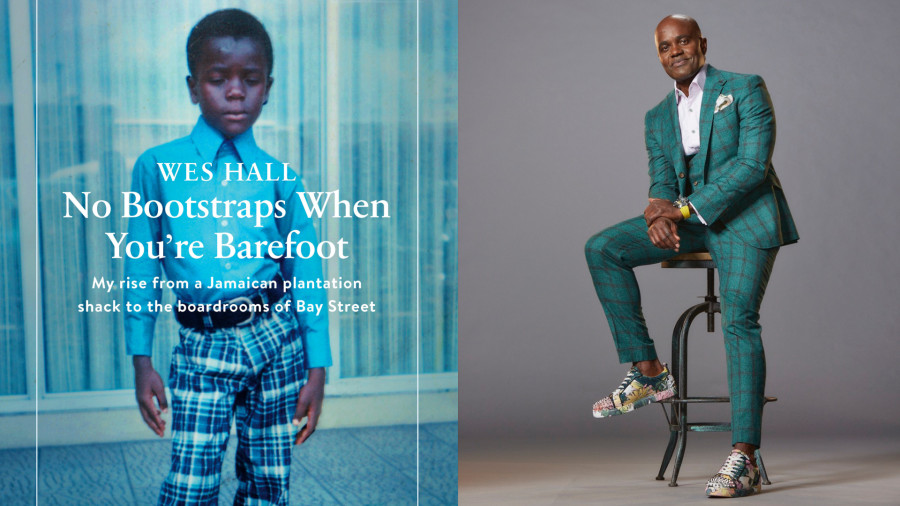Wes Hall was ready. He was ready to leave Jamaica. Ready to leave Stikeman. Ready to leave Georgeson. And to me, it is that readiness that makes him ready to call for change among his peers in corporate Canada. At least in part.
Wes’ book, No Bootstraps When You’re Barefoot, chronicles stories of abuse, neglect, love and naïveté. I’m not sure what you are expecting from this read, but it was NOT what I expected. I had a chance to interview him and I was honest when I told him I thought his book would be trash. I was expecting another one of those condescending books that make Black people seem superhuman. That is not what this was.
Wes has survived things that after reading about, made me squeeze my son a little tighter at night, and thank my mother for her tolerance, humanity and love. And despite suffering terrible circumstances, Wes doesn’t come across as superhuman in this book… he just comes across as ready, resilient, and a little bit lucky.
And he agrees.
This book was good - very good. He is not giving anyone the keys to success (sidebar: those keys don’t exist). He says he didn’t have the proverbial bootstraps in this book’s title, because he didn’t have any "boots"… and neither do a lot of Black people.
Which is exactly the point.
Wes is not special. He’s actually quite ordinary which is why systemic change and providing pathways out of poverty for people with less privilege, or people of the global majority (aka non-White people) is important.
{https://www.instagram.com/p/CiA8hEhACal/?hl=en}
Perhaps the best thing Wes included in No Bootstraps When You’re Barefoot was a story about how he had been turned down by the banks for a $100,000 loan. This is a story we are all familiar with. But then, plot twist, Wes found Lancelot Dey a Black banker who was willing to advocate for him.
By every measure, Wes should have been approved for this loan in the first place. He had already been working on Bay Street for a while (good stable income) and had equity in the home he owned in Newmarket that exceeded the amount of the loan (collateral), and still the bank said that he did not qualify for the loan. But Lancelot advocated for him and got him the $100,000 loan.
This, I think, is why folks should read this book.
Because it’s at this point in the book that Wes realizes that being Black matters - and not in a good way. In my interview, Wes admitted to me that without Lancelot and some other people he was fortunate to have access to, he wouldn’t be who he is today. He would not have been able to start Kingsdale Advisors. Lancelot paid it forward and now it’s up to Wes to do the same.
Ultimately I am recommending this read because it has so many nuggets that will work to drive you forward and remind you to make small advances in your everyday life that will advance us all a bit closer to equity.
ByBlacks Rating System:
BBBBB Outstanding
BBBB Extremely Good
BBB Good
BB Challenged
B Don't bother going

 By
By 




![[REVIEW] Reconnecting With Our History: A Review Of Venus’ Daughter](/media/k2/items/cache/a837e119cd945083823082e324cfb9ef_M.jpg?t=20170410_023445)
